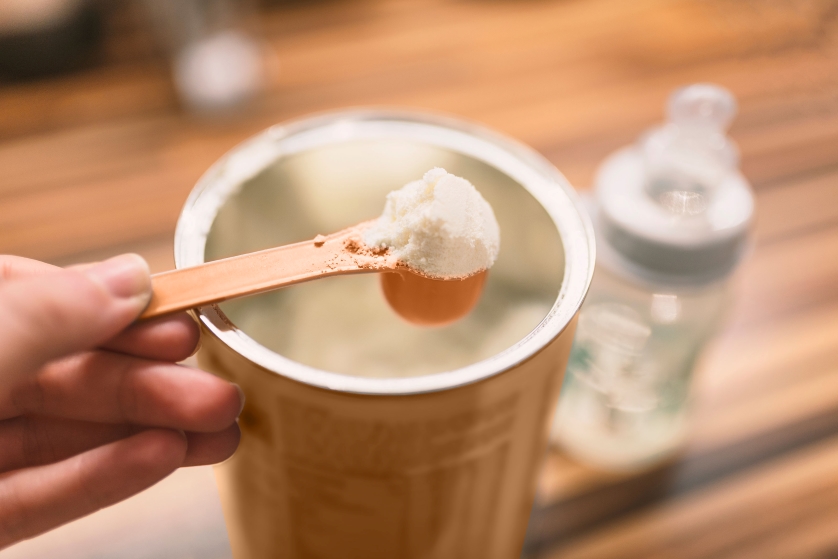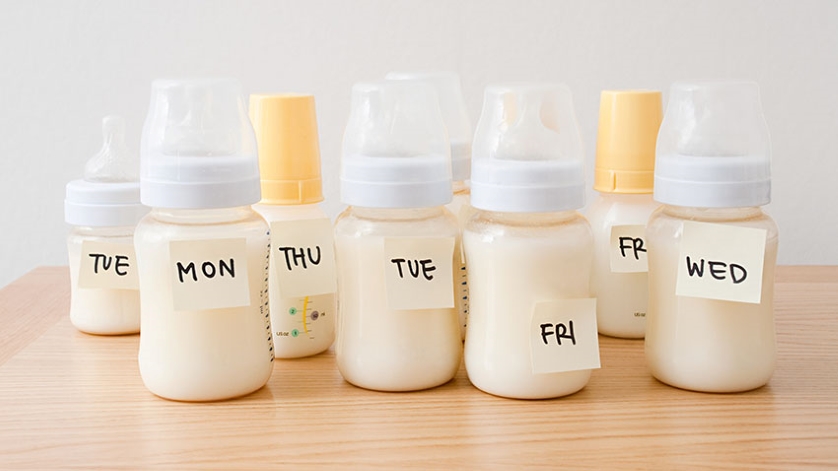Every mum wants the best for her baby, and the same stands when it comes to feeding. Like other things like bathing and swaddling, how you feed your baby is a very personal decision. However, you want to provide the best nutritional start for your baby, as it will determine how well they will grow and how strong their immune system will be.
The CDC is very clear when it comes to infant nutrition. The official AAP recommendation is that infants should be exclusively breastfed for about the first six months with continued breastfeeding and the introduction of appropriate complementary foods for one year or longer. People will say breast is best, and they’re right: breast milk provides a baby with all the nutrients they need in the right proportions and valuable antibodies. Yet, breastfeeding isn’t always achievable. What are some of the reasons for this, and why the baby formula is the best alternative to breast milk? Knowing your options will help you make the best decision for your baby. But how can you choose the best formula for your baby?

Contents
Reasons for Formula-Feeding
Besides breastfeeding, you have two more options. You can either entirely formula-feed or supplement with formula, which means you can give formula to your baby in addition to breast milk. There are several reasons for that.
- Medical issues. Your baby might be born prematurely or have certain medical conditions that require supplementing. In such cases, breast milk isn’t enough for the baby.
- Low breastmilk supply. Every woman can experience a low milk supply. This can be due to previous breast surgery or other medical conditions. If the low supply continues and your baby doesn’t get enough milk, it may be best to supplement with formula. In what cases do doctors recommend supplementing? If your baby has fewer than six wet diapers in 24 hours, it’s fussy all the time, they gain weight very slowly or even lose some weight, maybe it’s time to switch to formula.
- Going back to work. You must return to work after your maternity leave, and pumping at work is inconvenient for you? Supplementing can help you continue to breastfeed and provide the best nutrition for your baby at the same time.
- Your partner wants to participate. Sometimes, it’s best for both parents to participate in feeding their baby. The best way to involve your partner in this is to land them a bottle of formula.
- You have multiples. Supplying human milk for multiple babies isn’t an easy task. When breastfeeding seems too much, have mercy on you and try supplementing with baby formula.
- You just want to. Last but not least, you should consider your wishes and feelings. If breastfeeding will cost you many negative emotions or even contribute to a mental breakdown, it’s not worth it. Your baby needs a happy mother, and if you don’t see yourself breastfeeding, infant formula might be best for you and your baby.
What Makes Baby Formula the Best Alternative to Human Milk?
Baby formula is the only appropriate alternative to breastmilk in the first 12 months of infants’ life. Cow’s milk can be too hard on your bub’s tummy to digest, and it doesn’t contain all the nutrients.
Giving your baby an age-appropriate formula is the best chance for your baby to get the nutrients they need, as most milk formulas are formulated to resemble the nutritional composition of breastmilk. The essential ingredients of infant formula, in general, include carbohydrates, protein, fat as well as vitamins and minerals to meet the needs of a growing full-term infant. Other important components include choline, inositol and long-chain polyunsaturated fatty acids, such as AA and DHA. Yet, not all formulas are alike.

While iron-fortified cow’s milk formula is the most recommended choice, there are different types of baby formula Australia wide available. Knowing the different options will help you determine which is the best formula for baby.
The Different Types and Forms of Baby Formula
As technology advances, formulas have been made closer to breastmilk. There is even a newborn formula that treats issues like gas, reflux and colic. These are the main baby formula types.
- Milk-based formula. These formulas make up to 80% of all formulas sold. Although cow milk is not an option for babies under one year, cow milk-based formula is totally safe. It’s been modified to be more digestible for little ones: protein is modified, and vegetable oils and sugar are added to make it more similar to human milk.
- Hydrolysed formula. There are 2 types of hydrolysed formula available: partially and extensively hydrolysed. Partially hydrolysed formulas are broken down to help babies with colic and gas. Extensively hydrolysed or predigested formulas are even more modified, which makes them suitable for babies with allergies to cow milk. They’re typically more expensive.
- Plant-based formula. Most plant-based formulas are made with added soy protein. They’re the first option for dairy or lactose intolerant babies. However, they’re not recommended for underweight babies, as soy proteins don’t help much with weight gain.
- Organic formula. This baby formula is what is organic food for adults. Made of organic milk, these formulas are on the more expensive side, which doesn’t have to mean premium quality. If you don’t have the budget, regular formulas are an equally good choice for your baby.
- Goat milk-based formulas. As the name suggests, such formula is based on goat’s milk instead of cow’s.

Baby formula comes in 3 main forms: powdered, liquid concentrate and ready-to-use. The powdered formula is most often used and least expensive. The liquid concentrate requires adding water, while ready-to-use formulas are prepared in advance for your convenience and are the most expensive ones.
How to Choose the Best Formula for Your Baby
Ask Your Pediatrician
Your pediatrician is an experienced doctor that has worked with many mothers and babies. Thus, they know the best options available in your community. Being aware of your baby’s health condition, they’ll come with the best human milk alternatives.
Consider Your Baby’s Dietary Restrictions
Whether your baby has allergies or is experiencing gas, reflux or colic, your formula choice will be more limited. On the other side, it’ll make it easier for you to choose.
Pick Up a Trusted Brand
All baby formulas go through thorough research and testing. This makes both branded and generic formulas a safe choice for your baby. Yet, when you go for trusted brands like Aptamil, Karicare, Nestle’s Nan and Novalac, you ensure that your baby gets premium quality food that will provide proper nutrition, so they can grow and develop at the best rate and way.











